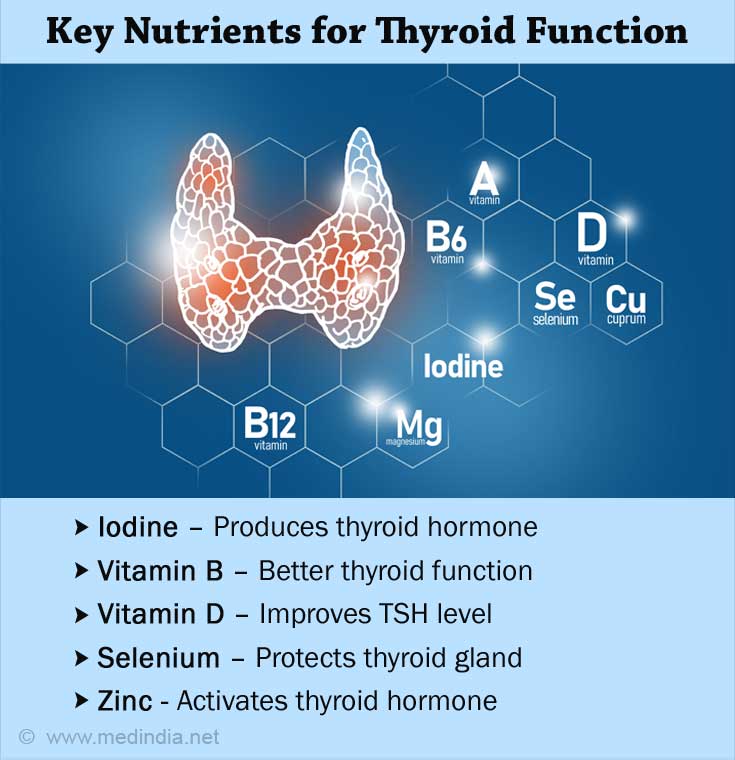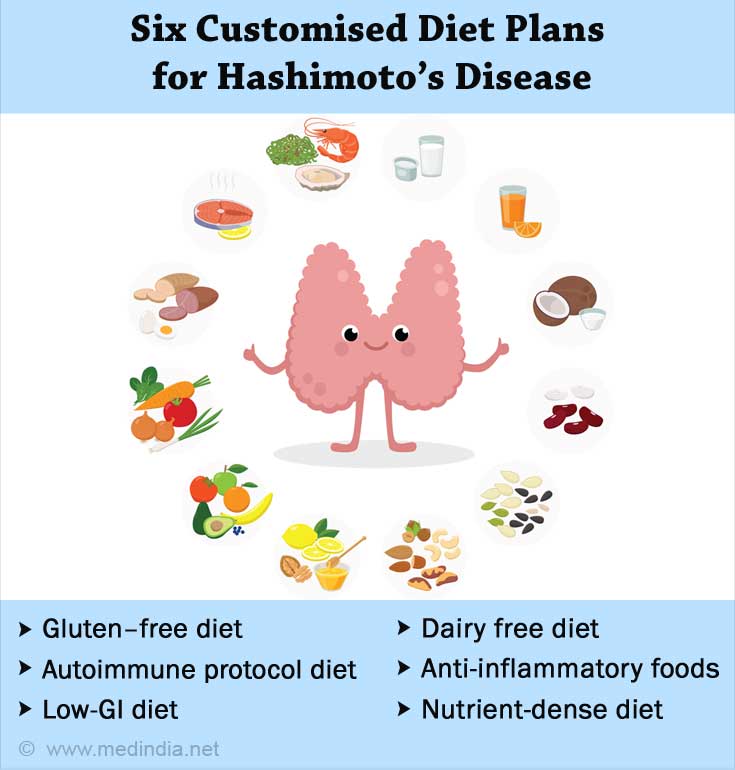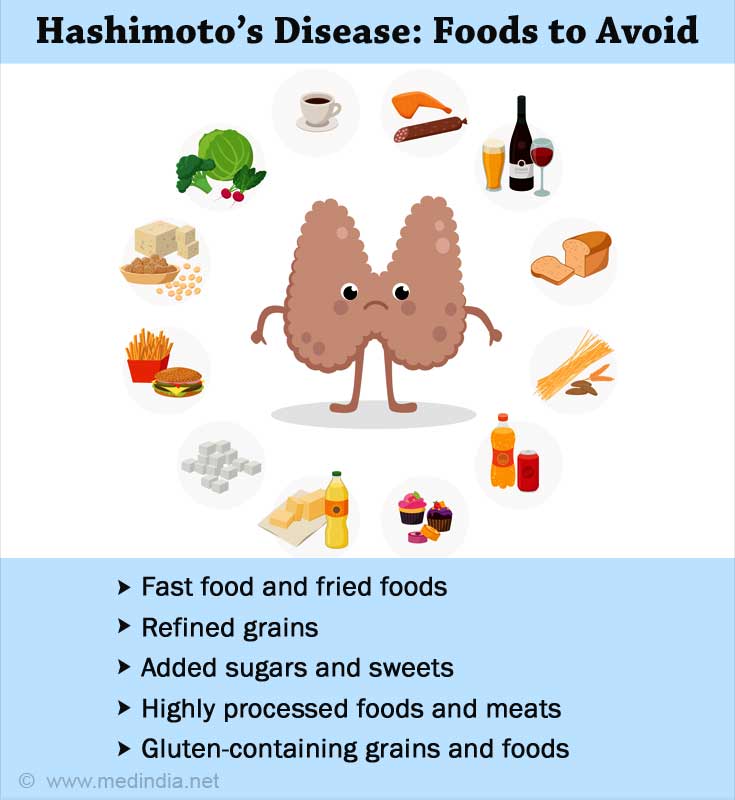- Thyroid Disease and Diet Control - (https://www.researchgate.net/publication/324156951_Thyroid_Diseases_and_Diet_Control)
- Influence of Dietary Habits on Oxidative Stress Markers in Hashimoto's Thyroiditis - (https://www.liebertpub.com/doi/full/10.1089/thy.2020.0299)
- Hashimoto's thyroiditis: An update on pathogenic mechanisms, diagnostic protocols, therapeutic strategies, and potential malignant transformation - (https://www.sciencedirect.com/science/article/abs/pii/S1568997220302202?via%3Dihub)
- Iodine Supplementation in Pregnant Women with Hashimoto's Thyroiditis - (https://www.liebertpub.com/doi/10.1089/ct.2021%3B33.257-259)
Thyroid gland is a major endocrine system that regulates fat and carbohydrate metabolism, respiration, body temperature, brain development, cholesterol levels, the heart and nervous system, blood calcium levels, menstrual cycle and skin integrity.
What is Hashimoto's Disease?
Hashimoto's disease is also known as Hashimoto's thyroiditis. It is an autoimmune disease, where antibodies are created by the immune system to attack the thyroid gland. About 5% of the population worldwide suffers from Hashimoto's disease.
Untreated hypothyroidism can cause hair loss, cold sensitivity, sleep disturbances, weight gain, depression, constipation, brain fog, fatigue, goiter (enlargement of the thyroid gland) and thyroid cancer.
Women are 10 to 20 times more likely to be affected by Hashimoto’s disease than men.
We should know what foods to eat and what foods to avoid to reverse the symptoms of Hashimoto’s thyroiditis.
Key Nutrients Essential for Thyroid Function
Several nutrients play an important role in optimizing thyroid function, such as iodine, selenium, zinc, vitamin B and D. Lets’ look at each of them in detail.

1. Iodine is required to make thyroid hormone - People with iodine deficiency are at risk of hypothyroidism. Iodine deficiency is less common in developed countries where iodized salt and iodine-rich seafood are widely available.
The recommended minimum iodine intake for most adults is 150 micrograms a day. Good sources of iodine include milk, cheese, poultry, eggs, kelp, and other seaweeds.
Iodine supplements are unnecessary because getting too much of this mineral may damage the thyroid gland.
2. Vitamin B is important for thyroid function - Vitamin B interacts with thyroid function and regulation.
Taking a nutritional supplement that includes the entire vitamin B complex, and including food sources of vitamin B like whole grains, legumes, nuts, milk, yogurt, meat, fish, eggs, seeds, and dark leafy greens in our diet may help in proper thyroid function.
3. Vitamin D improves TSH levels - According to recent studies, more than 90% of patients with vitamin D deficiency have Hashimoto’s disease. vitamin D supplements improved TSH levels in people with hypothyroidism as well as thyroid antibodies in people with autoimmune thyroiditis.
Foods that contain vitamin D are fatty fish, milk, dairy, eggs, and mushrooms. Sunlight is also a potential source, but the amount of production depends on the season and latitude.
4. Protective role of selenium - Selenium protects the thyroid gland from damage by reducing the level of antibodies against thyroid peroxidase, an enzyme that plays an important role in the thyroid hormone production.
Selenium-rich foods includes Brazil nuts, tuna, sardines, eggs, and legumes. 100 to 200 micrograms of selenium in supplement form per day is considered to be safe.
5. Zinc activates thyroid Hormone - zinc help in the conversion of the thyroid hormone T4 to T3 and improves T3 levels significantly.
The recommended daily intake of zinc is 8 to 11 milligrams for adult women and men, respectively. Food sources of zinc include meat, shellfish, mollusks, legumes, and nuts.
Harmful Nutrients that Affect Thyroid Function
Some nutrients are harmful and affect the proper functioning of the thyroid gland, especially foods that contain goitrogens.
Goitrogens - Goitrogens are compounds that interfere with the normal function of the thyroid gland. Common foods that contain goitrogens include:
- Soy foods: tofu, tempeh, edamame, etc.
- Certain vegetables: cabbage, broccoli, kale, cauliflower, spinach, etc.
- Fruits and starchy plants: sweet potatoes, cassava, peaches, strawberries, etc.
- Nuts and seeds: millet, pine nuts, peanuts, etc.
Tip: Cooking these foods may inactivate goitrogen compounds.
Also, refined sugars and grains, processed foods, saturated fats and trans fats are the most harmful foods for Hashimoto’s disease
Six Best Diets for Hashimoto’s Disease
An individualized approach to a diet plan is necessary, as there is no proven specific diet plan to treat everyone with Hashimoto’s disease.

1. Gluten–Free Diet:
Hashimoto’s disease patients are most sensitive to gluten. Gluten is a family of proteins found in grains, including wheat, rye, spelt, and barley.
They experience constipation, diarrhea, cramping, bloating, nausea, reflux, gas, headaches, fatigue, and brain fog as symptoms of their reactions to gluten.
People who attempted a gluten-free diet reported improvements in digestion, mood, energy levels, and weight reduction.
The best way to go gluten-free is to focus on foods that are naturally gluten-free, such as vegetables, fruits, lean meats, seafood, beans, legumes, and nuts.
2. Autoimmune Protocol Diet:
The Autoimmune Paleo (AIP) diet decreases the inflammation and damage to the gut. It is similar to the Paleo diet but also cuts out nightshade vegetables, such as tomatoes, eggs, nuts, and seeds.
The Paleo diet gives importance to whole, unprocessed foods like our early ancestors. Nightshade foods contain solanine, a chemical that aggravates inflammation.
Grains, dairy, potatoes, beans, lentils, refined sugar, and refined oils are not allowed. Cage-free and grass-fed meats, vegetables, nuts (except peanuts), seeds, seafood, and healthful fats, such as avocado and olive oil, are allowed.
3. Low-GI Diet:
A low glycemic index or low-GI diet is based on an index that measures how each food affects a person’s blood sugar levels. People with type 2 diabetes use this diet. This diet can also lower the risk of heart disease and help you to lose weight.
4. Dairy Free Diet:
Cutting out dairy products helps to sort out digestive issues, as well as thyroid function and medication absorption. This strategy may not work for everyone, as some people with Hashimoto’s tolerate dairy perfectly well.
5. Anti-inflammatory Foods:
An anti-inflammatory diet can improve symptoms of Hashimoto’s disease. Vegetables, fruits, spices, and fatty fish are just some examples of foods with powerful anti-inflammatory properties.
5. Nutrient Dense Diet:
People who do not want to focus on a particular diet can opt for a nutrient-dense diet plan.
Following a diet, rich in whole nutrients but low in added sugar and highly processed foods help to improve our health, manage your weight, and reduce Hashimoto’s-related symptoms.
Home-cooked foods using nutritious vegetables, fruits, proteins, healthy fats, and fiber-rich carbs offer powerful antioxidant and anti-inflammatory benefits.
Foods to Avoid
Eliminating or restricting the following foods can reduce Hashimoto’s symptoms and improve our overall health.

- Added sugars and sweets: Soda, energy drinks, cakes, ice cream, pastries, cookies, candy, sugary cereals, table sugar, etc.
- Fast food and fried foods: French fries, hot dogs, fried chicken, etc.
- Refined grains: White pasta, white bread, white flour tortillas, bagels, etc.
- Highly processed foods and meats: Frozen dinners, margarine, microwave dinners, bacon, sausage, etc.
- Gluten-containing grains and foods: Wheat, barley, rye, crackers, bread, etc.
Every person with Hashimoto’s disease is different, so it is important to find a dietary pattern that suits best to your needs.
A dietitian who specializes in autoimmune diseases can help you find a diet that works specifically for each person.






